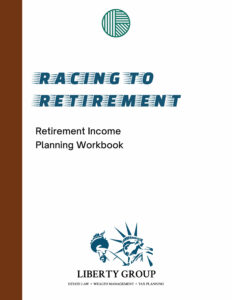How Elections Impact Your Retirement Savings: Beyond Party Lines
In this video, Matthew del Junco, President of Financial Planning and Senior Wealth Advisor at Liberty Group, demystifies the impact of election results on your retirement savings and provides actionable strategies for your financial future, regardless of political shifts. He dives into whether the party in power truly affects your retirement taxes and savings. Spoiler alert: Strategic, long-term planning overshadows short-term political changes.
Two-Year Election Cycle Effect
Firstly, consider the two-year election cycle in the United States. With legislative leaders elected biennially, we’re presented with a constantly evolving government landscape. For those planning for retirement, this means navigating a path through decades with potential shifts in policy every two years. This frequency of change introduces a layer of uncertainty and risk to our retirement planning—risks tied to potential tax increases and legislative shifts affecting our saving strategies.
Demographic Evolution of Our Nation
Another pivotal factor is the demographic evolution of our nation. An aging population, coupled with expanding needs for social safety net programs like Social Security and Medicare, places immense pressure on these resources. This scenario, against the backdrop of an over $31 trillion federal debt, suggests an inevitable shift toward new taxation measures to manage both legislative ambitions and mandatory social spending.
The landscape I’ve described points toward an era of rising taxes. It’s imperative for individuals to engage with financial professionals to craft a retirement strategy that is resilient to both tax and legislative risks. This involves understanding potential tax exposures and how legislative changes could affect your retirement savings.
Beyond tracking political cycles, effective retirement planning requires a nuanced understanding of tax efficiency and investment diversification. It’s about positioning your assets in a way that minimizes tax liabilities while maximizing growth potential—regardless of who holds political power.
Tax-Advantaged Accounts
Consider the role of tax-advantaged accounts, like Roth IRAs, which offer tax-free growth and withdrawals in retirement. Exploring such vehicles can provide a buffer against future tax increases, offering a degree of certainty in uncertain political times.
Taking Action
Let’s talk action. Start by reviewing your current retirement plan with a financial advisor, focusing on tax efficiency and exposure to legislative changes. Evaluate your portfolio for diversification, not just across asset classes, but also tax treatments. And don’t forget, staying informed about potential policy changes is key.

